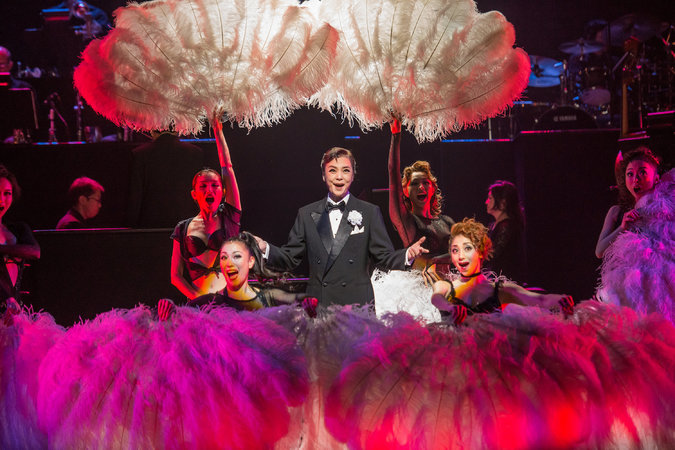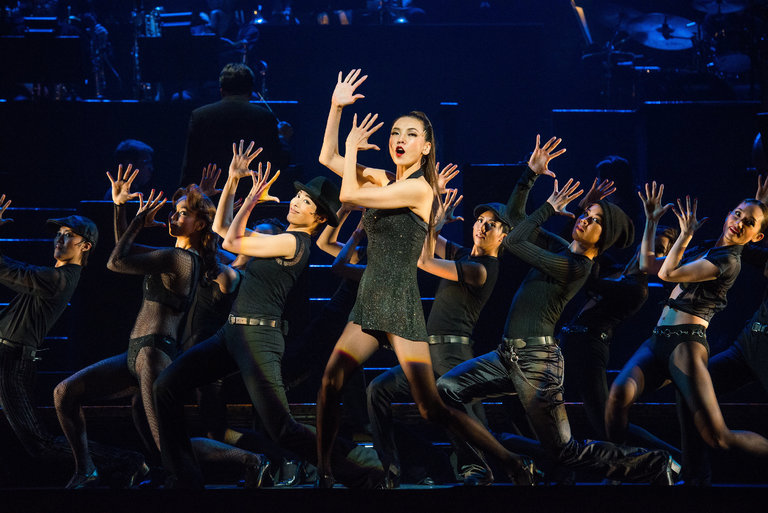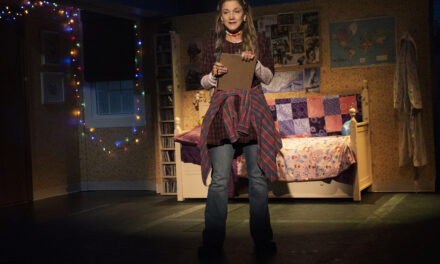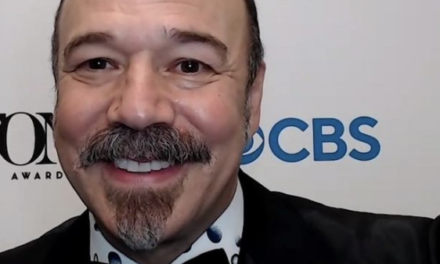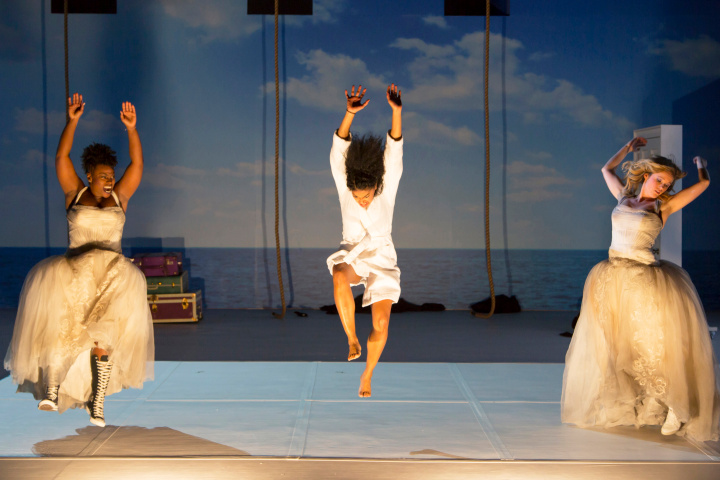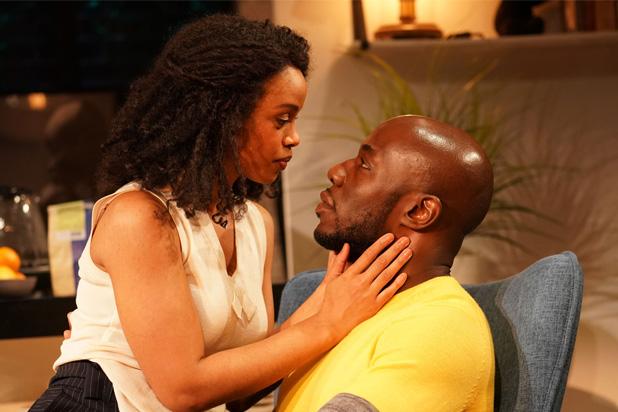by Jerry Beal
At intermission of this splendid production, I got to speak with an 87-year-old Japanese woman who first encountered Takarazuka as a little girl in Japan. She and her daughter told me that the company is known for its Ziegfeld Follies-like extravaganzas and as such, not knowing this show, they were a bit disappointed in what they were seeing. Having seen the program, I assured them we would be getting an encore after the show, which indeed featured what they craved. But this disparity between their signature style and the sparseness that best illuminates “Chicago” only accentuates the kind of magic this company creates here at the David Koch Theatre of Lincoln Center.
When it first appeared in 1976, Chicago was the victim of two accidents of timing. The first was that it arrived at the same time as A Chorus Line. The second, unbeknownst to anyone, was that it was twenty years ahead of the event that would propel it into the musical theatre stratosphere: the O.J. Simpson affair. The parallels are palpable, and the resonance with the politics of 2016 are frightening. This is a show about bogus celebrity, appearance vs. reality, duplicity, the follies of fame, and gullibility. It is about a woman who shoots her lover, makes her husband the patsy, is exonerated by the jury, and becomes the musical star she always wanted to be. And the entire format is that of a vaudeville entertainment, making it a show within a show and a commentary on its own content.
That this production is thrillingly performed by an all-female Japanese company with super-titles above the stage, further cements the “meta” quality of the piece. Bob Fosse’s original choreography seems very much intact, the incomparable John Kander/Fred Ebb score is magnificently served by its on-stage orchestra, the stage setting is suitably spare, and the cast is near perfection. I could not take my eyes off Yuga Yamato, whose Roxie is vulnerable, brash, sexy, dangerous, and dances as if she’d been molded from a piece of Fosse clay. Her solo (“Roxie”) in which she fantasizes about what ultimately comes true is a wonder. Natsuki Mizu as Velma stays right with her, particularly as the show reaches the duets that end the first and climax the second act (“My Own Best Friend” and the exquisite “Nowadays”). Watching the latter somehow brought to mind Astaire and Buchanan doing “I Guess I’ll Have to Change My Plan” in “The Band Wagon.” The males- Billy and Amos (Saki Asaji and Chijiro Isono)- become more believable the more we see them, and the Mary Sunshine surprise (T. Okamolo) is handled expertly.
If there is any issue at all, it is simply that looking at the supertitles takes our eyes off the stage, which is always a loss. But the achievement is so rich and absorbing that in the end, one element feeds the other, and Takarazuka leaves its mark in a unique and memorable experience.
Photos: Stephanie Berger


